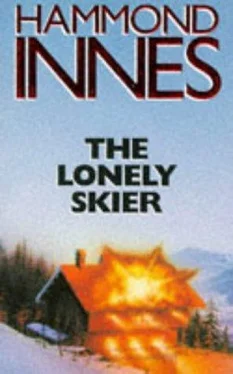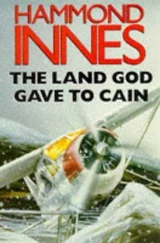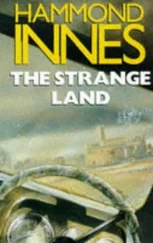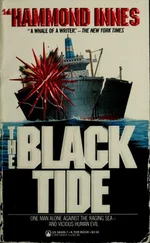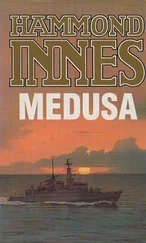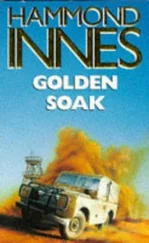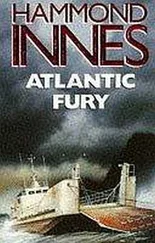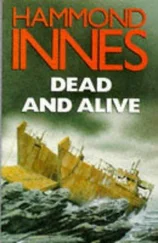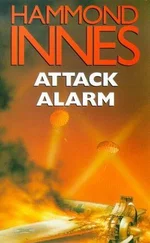Hammond Innes - The Lonely Skier
Здесь есть возможность читать онлайн «Hammond Innes - The Lonely Skier» весь текст электронной книги совершенно бесплатно (целиком полную версию без сокращений). В некоторых случаях можно слушать аудио, скачать через торрент в формате fb2 и присутствует краткое содержание. Жанр: Прочие приключения, на английском языке. Описание произведения, (предисловие) а так же отзывы посетителей доступны на портале библиотеки ЛибКат.
- Название:The Lonely Skier
- Автор:
- Жанр:
- Год:неизвестен
- ISBN:нет данных
- Рейтинг книги:3 / 5. Голосов: 1
-
Избранное:Добавить в избранное
- Отзывы:
-
Ваша оценка:
- 60
- 1
- 2
- 3
- 4
- 5
The Lonely Skier: краткое содержание, описание и аннотация
Предлагаем к чтению аннотацию, описание, краткое содержание или предисловие (зависит от того, что написал сам автор книги «The Lonely Skier»). Если вы не нашли необходимую информацию о книге — напишите в комментариях, мы постараемся отыскать её.
The Lonely Skier — читать онлайн бесплатно полную книгу (весь текст) целиком
Ниже представлен текст книги, разбитый по страницам. Система сохранения места последней прочитанной страницы, позволяет с удобством читать онлайн бесплатно книгу «The Lonely Skier», без необходимости каждый раз заново искать на чём Вы остановились. Поставьте закладку, и сможете в любой момент перейти на страницу, на которой закончили чтение.
Интервал:
Закладка:
And with hope came reason. I lay there for a moment planning my moves carefully. I must husband my strength. To get this one stick out. That was the first thing. Then search for the other with my skis.
I rolled over on to my stomach and began to dig with my hands. I dug all round the stick. And at last I freed it. I pulled it clear and wiped the snow from it. It was like the sight of a ship to a drowning man. I had no feeling in my right hand. I took my wet glove off and breathed on my hand and rubbed it. The circulation began to tingle and burn in the finger-ends.
I pressed the end of the stick into the snow. It was wonderful to feel the webbed circle of it pack the snow down and hold my weight. I thrust myself up into a sitting position and manoeuvred myself down to my skis. They had frozen into the snow. But I got one of them loose and, when I had wiped the snow and ice off it, I began piercing the snow all about where I had been lying with the straight heel of it.
I thought I should never find that other stick. In inn desperation I tried lower down. And at last I located it, quite near the surface and close to the spot where my other ski still stood bedded in the snow. It must have been ripped from my hand as I went into the snow.
I lay down then. I had no more energy. My body felt chilled right through. Yet the blood glowed in my veins with the fever of exhaustion. But I was no longer helpless. I had both my sticks. Soon I should be on my skis again. Soon — when I had enough strength. All the warmth died out of me as I lay there. I began to feel cold and very sleepy. I thought about my skis. I had to get them on. It would be such a struggle. My thoughts were limited now to that one action. The world was condensed into a pair of skis.
I think I should have lain there, relaxed, until the snow drifted right over me, if I hadn’t been lying for support across that one ski. I was lying with the full weight of my body on the toe stops and the sharp steel pressed painfully against my ribs.
At last I made a supreme effort of will and lifted myself off the ski. As I sat up, a pile of drift snow sifted off my body. The wind struck fresh on my face as it cleared the edges of the hole. It seemed lighter now. There was less snow falling. I looked at the upended haft of my other ski. It stood straight up, like a smooth slat of wood erected to mark the grave of a man who had died there.
Pressing with one hand on the free ski and the other on one of my sticks, I wriggled over to it. It was frozen tight. I had to work hard to loosen it. But at last it / i no came out. Then I sat in the snow and cleared the ice from both skis and waxed them.
I did not stop now. I felt that, if I stopped to rest, I should never have the strength of will to rise again. I swivelled round so that I was lying slightly above my skis. I bedded them firmly into the snow and then cleared the snow from my boots. But it was not easy to fix the skis to the boots. My fingers were stiff and they seemed to have no strength in them. And when at last I had the clips round the heels of my boots, the heavy spring clip in front of the toe seemed as though it had lost its spring. It took every last ounce of energy I possessed to pull those powerful clips over.
But at last it was done, and, as I lay panting there, I felt the comfort of the heavy skis on my feet. It is strange — when one comes fresh to skis after a long time, they seem so clumsy on one’s feet. But, believe me, if you try to stand in soft snow without them, you feel as though you are trying to row without a boat. And it is a wonderful feeling to have your skis solid under your feet again.
After a little while, I took hold of my sticks and forced myself upright until I was crouched on my toes with the skis under me.
Then at last I rose to my feet and stood there in the snow, looking down at the trampled hole that I had torn with my body in the soft whiteness of the valley.
I could hardly stand for weariness and the cramped aching of my cold limbs. But it was a wonderful sensation just to stand upright again, no longer in the clutches of the snow, but treading it firmly beneath my feet, able to move upon it. I felt like a man who has climbed a great peak and feels the whole world and the elements conquered.
Slowly I stamped my feet to restore the circulation. And whilst I was doing this, I began to consider what I should do. Where was Mayne? To go down to Carbonin was easiest. If I kept travelling downhill, I should strike the pass. But should I? All about me was a jumbled heap of snow hills. Mayne’s tracks were completely obliterated. The snow drifted like a white sandstorm, a moving surf of powder clinging close to the lying snow. Mayne had probably led me off the beaten track. If I followed the valley down, it might only lead me farther into the mountains. And suppose I made the pass? Mayne had said it was narrow — so narrow that it was impossible to lose one’s way. Suppose he was waiting for me in that pass? He would wait a long time. He would want to be sure. I looked quickly about me. At this very moment he might be standing on the edge of visibility, watching and waiting to pounce on me if I looked like getting out of this white jungle alive. I remembered what Keramikos had said of him.
As I looked about me, the wind suddenly changed. It began to blow down from the glacier. The snow and the leaden sky was swept slowly away like a gauze curtain being drawn back. Black peaks began to stand out above me. The snow hills all round me were no longer blurred shapes, but sharp and clearly defined. Ahead of me and about a thousand yards down the valley was a glacier. It was not the Cristallo glacier which we had crossed much higher up, but another and smaller glacier. Its black moraines showed quite clear against the snow. It was circled by ragged crests. There was no sign of a pass. There was also no sign of Mayne.
I was convinced then that he had led me off the proper track. This was borne out later when I had a chance to look at a map. The small glacier that I was looking down on to was the one under Monte Cristallino. After crossing the main Cristallo glacier, Mayne had swung hard to the right, away from the pass to Carbonin.
It was that freak change in the weather that decided my course of action, and incidentally saved my life. If it had remained thick, I should have gone on down the valley to the Cristallino glacier. And there I should have frittered away my energy until nightfall. And that would have been the end.
But that sudden lifting of the snow showed me that there was only one thing to do; retrace my steps to the main Cristallo glacier, cross the top of the pass under Popena and go down to Col da Varda the way we had come up.
It was a big decision to make, for it meant climbing more than a thousand feet. And if the snow came down again and I lost my way, I knew I should not have a hope. But at least I knew there was a way through and, even if it began to snow again, I might remember the contours of the ground sufficiently to find my way back. To go forward meant facing the unknown and possibly Mayne. And though I would have been glad to go down instead of up, I dared not risk meeting Mayne. He was too good a-skier. I should not have a chance.
So I turned and faced the long white slope down which I had come so easily and so fast. It took me two hours by my watch to climb that slope. I had to go slowly, with many halts, zig-zagging up in a series of gentle diagonals. It was past two by the time I reached the top and looked down on to a grey sea of cloud out of which distant peaks rose like islands. The snow had cleared from the mountain tops and lay like a dirty blanket on their slopes, filling the great valley fissures.
I will not record the details of that journey. There were times when I stood, my head bowed on my sticks, certain I could not go another yard. On these occasions, it was only by the greatest exercise of my will that I prevented my knees from folding under the weight of my body. All I desired was to relax and sleep. Once I was careless and fell. The muscles of my arms and legs barely had the strength to thrust me back on to the skis again. And, of course, the higher I climbed, the weaker I became, owing to the altitude.
Читать дальшеИнтервал:
Закладка:
Похожие книги на «The Lonely Skier»
Представляем Вашему вниманию похожие книги на «The Lonely Skier» списком для выбора. Мы отобрали схожую по названию и смыслу литературу в надежде предоставить читателям больше вариантов отыскать новые, интересные, ещё непрочитанные произведения.
Обсуждение, отзывы о книге «The Lonely Skier» и просто собственные мнения читателей. Оставьте ваши комментарии, напишите, что Вы думаете о произведении, его смысле или главных героях. Укажите что конкретно понравилось, а что нет, и почему Вы так считаете.
